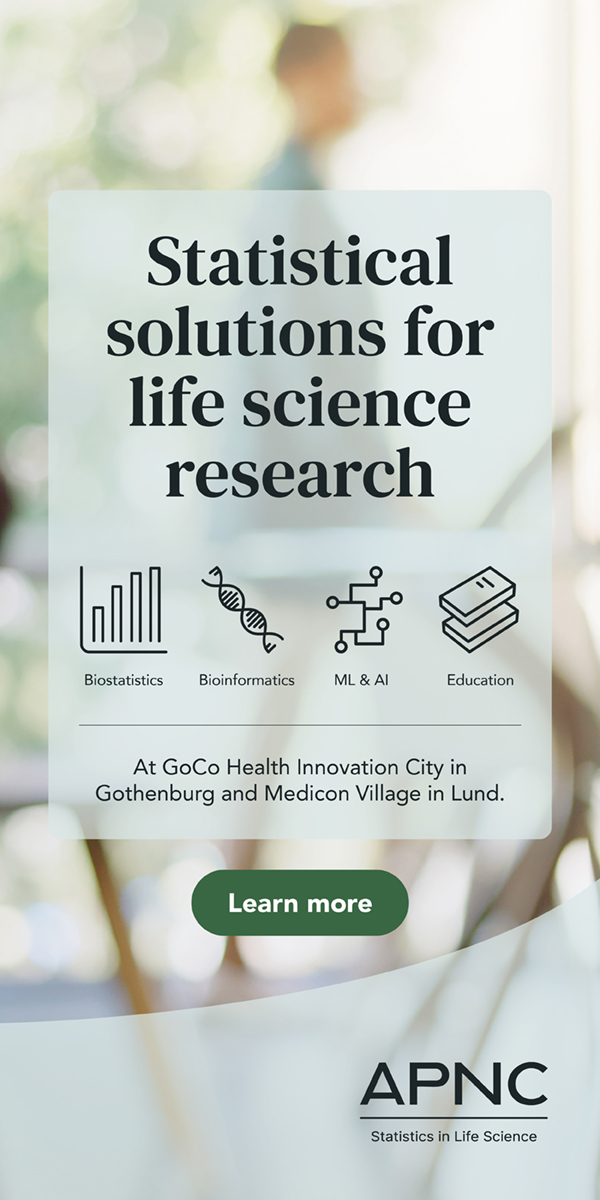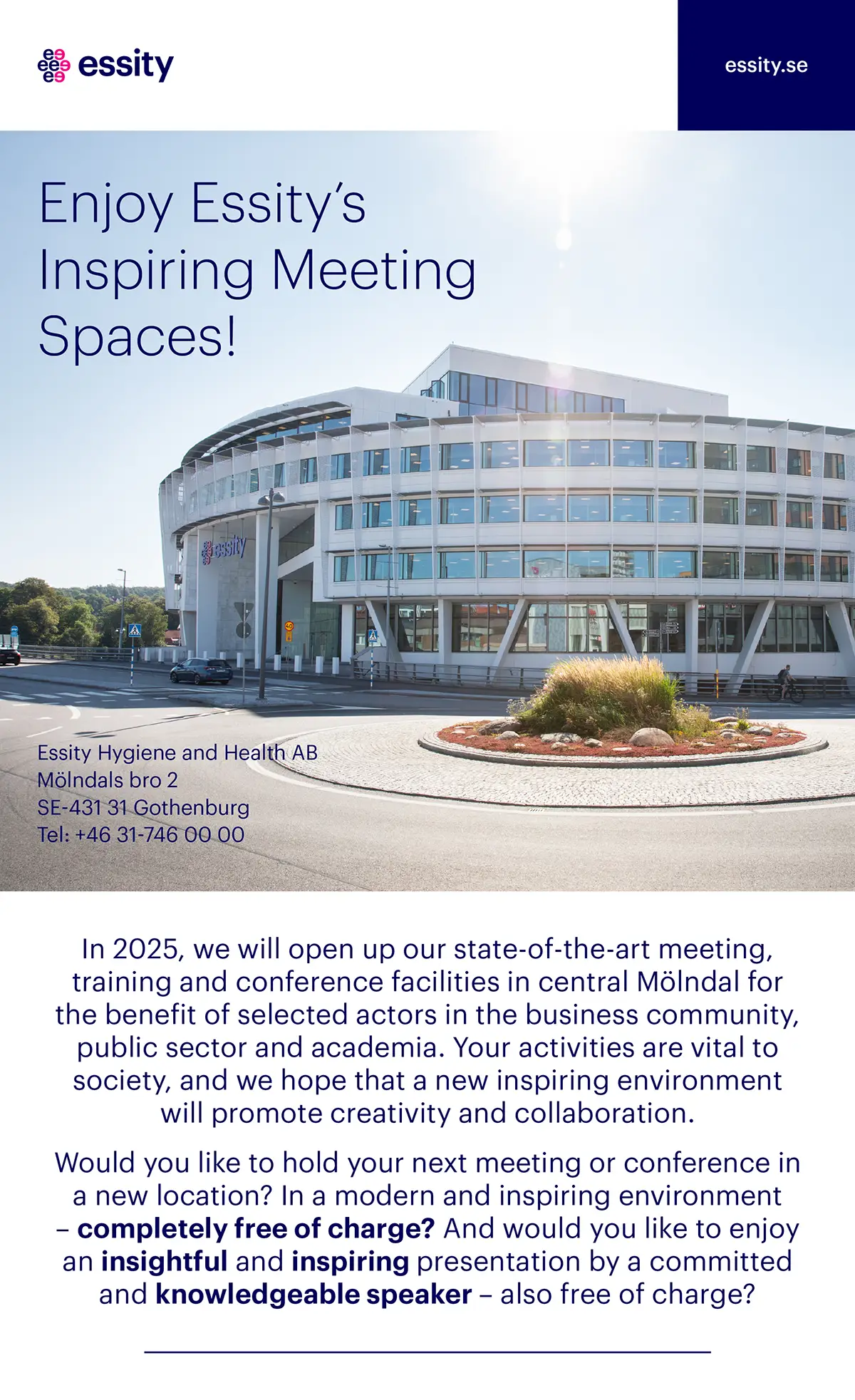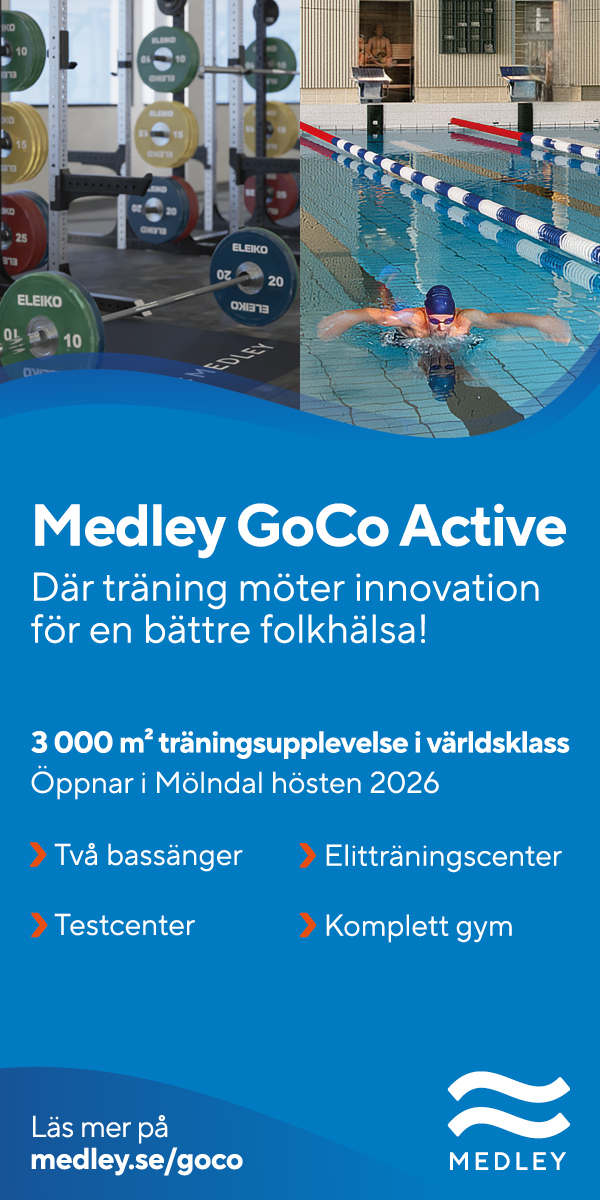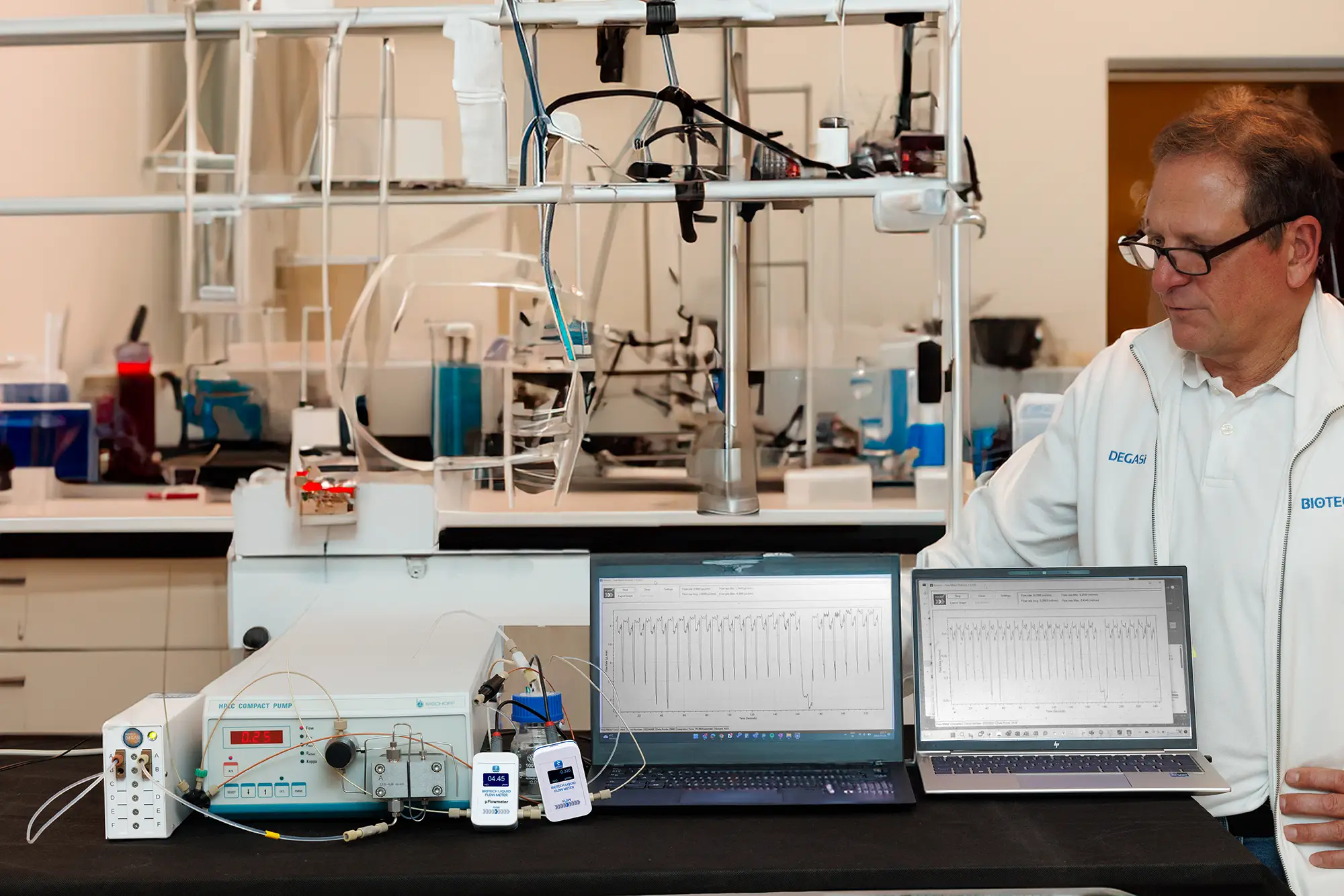Building a World-Class Life Science Cluster at Medicinareberget

burg – close to Chalmers University of Technology and adjacent to Sahlgrenska University Hospital – Medicinareberget is home to the Sahlgrenska Academy and the University of Gothenburg’s Faculty of Science and Technology.
– What already exists at Medicinareberget, with Sahlgrenska University Hospital and world-class education and research, makes this place unique. Adding life science companies here enables us to create a dynamic cluster that can compete with the very best globally, says Tony Wolf, Property Manager at Akademiska Hus responsible for Medicinareberget.
Medicinareberget and the hospital area are currently undergoing an expansive development phase, with several stakeholders working together to strengthen the Gothenburg region. Akademiska Hus, which owns the majority of properties at Medicinareberget, is developing the area in close collaboration with the University of Gothenburg. An important milestone was the construction of Natrium, completed in 2023, housing the university’s faculties of Science and Technology.
– With Natrium accommodating these faculties, other premises have been freed up, opening opportunities for industry – particularly life science companies – to establish themselves on campus. In parallel, Region Västra Götaland and the University of Gothenburg are running the joint project Sahlgrenska Life, which will add three new buildings for highly specialized healthcare and stronger collaboration between academia and healthcare, explains Wolf.
Together, these initiatives are shaping Medicinareberget into a central hub for education, research, and innovation within life science. In developing the area, Akademiska Hus and the University of Gothenburg engaged external consultants to assess which types of businesses and functions could strengthen the university.
– The conclusion was that we need to create better conditions for industry to engage with the existing ecosystem – meaning research and education already present here – and interact with students to secure the workforce of the future, which we have acted upon, says Anders M. Berg, Strategic Property Developer at Akademiska Hus focusing on industry and services.
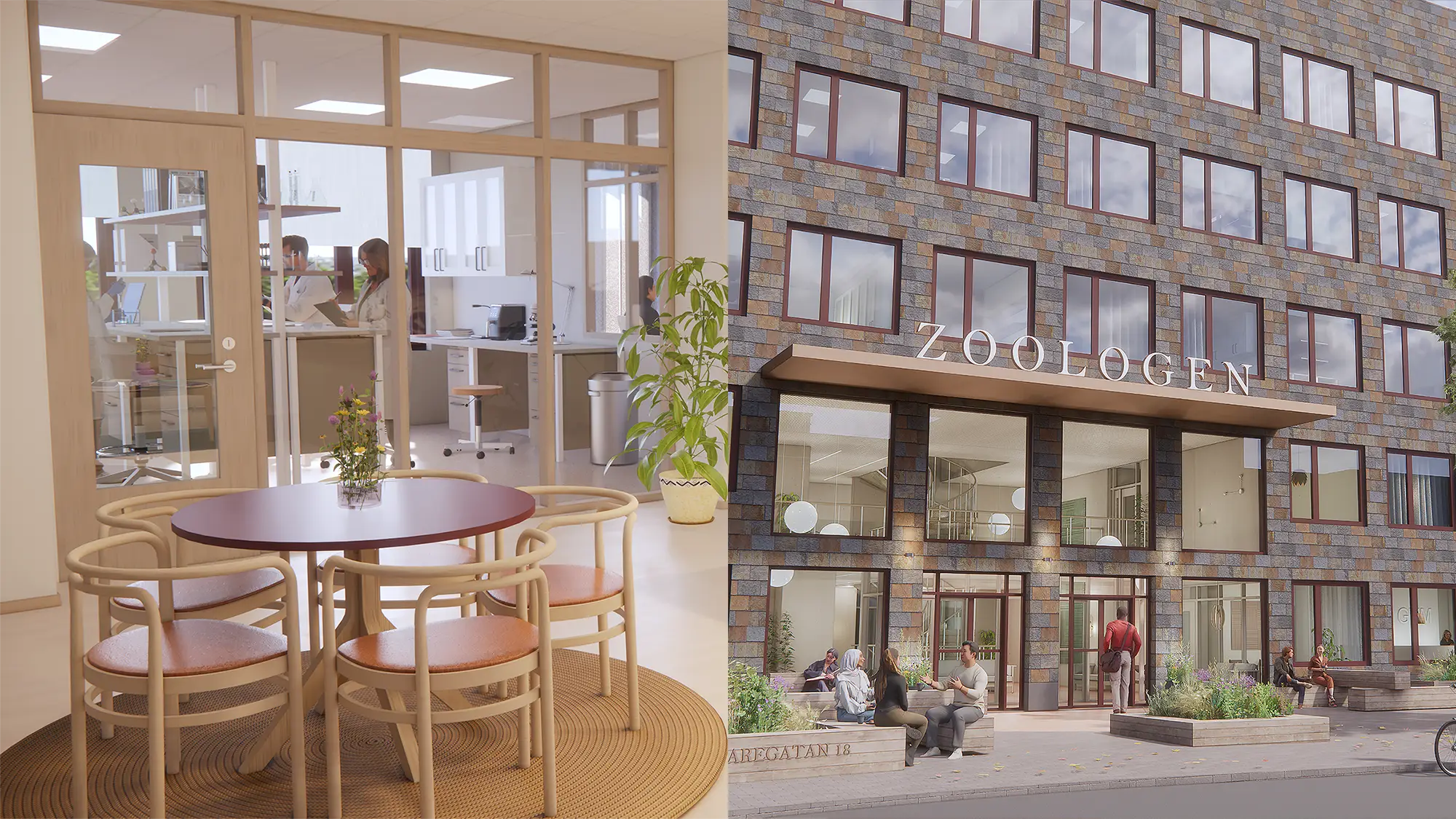
Strengthening the Industry Presence
In 2024, Akademiska Hus and Sahlgrenska Science Park opened Health Innovation Labs, designed for startups in fields such as life science. The premises at Medicinaregatan offer 2,400 square meters of laboratory space, offices, and shared facilities.
– Interest in Health Innovation Labs has been very strong, with leasing exceeding expectations. Several companies are now preparing for the next step in their growth journey, requiring larger dedicated facilities – which we can provide through our ongoing Zoologen project, explains Berg.
In spring 2025, Akademiska Hus began a major renovation of the former university building Zoologen, adapting it to meet the needs of innovation-driven companies with laboratories, research environments, and knowledge-intensive operations within life science and other scientific fields.
– Once completed, the building will host more than 20 fully refurbished laboratory and office units, ranging in size from 95 to 850 square meters, equipped with full laboratory infrastructure including safety ventilation, gases, and compressed air. These are not standard office spaces – they are designed specifically for companies with laboratory operations, says Wolf.
– Instead of each tenant having large private conference rooms, we are creating a shared meeting hub where tenants can book conference rooms by the hour. The ground floor will provide an inviting informal meeting space for collaboration and spontaneous encounters.
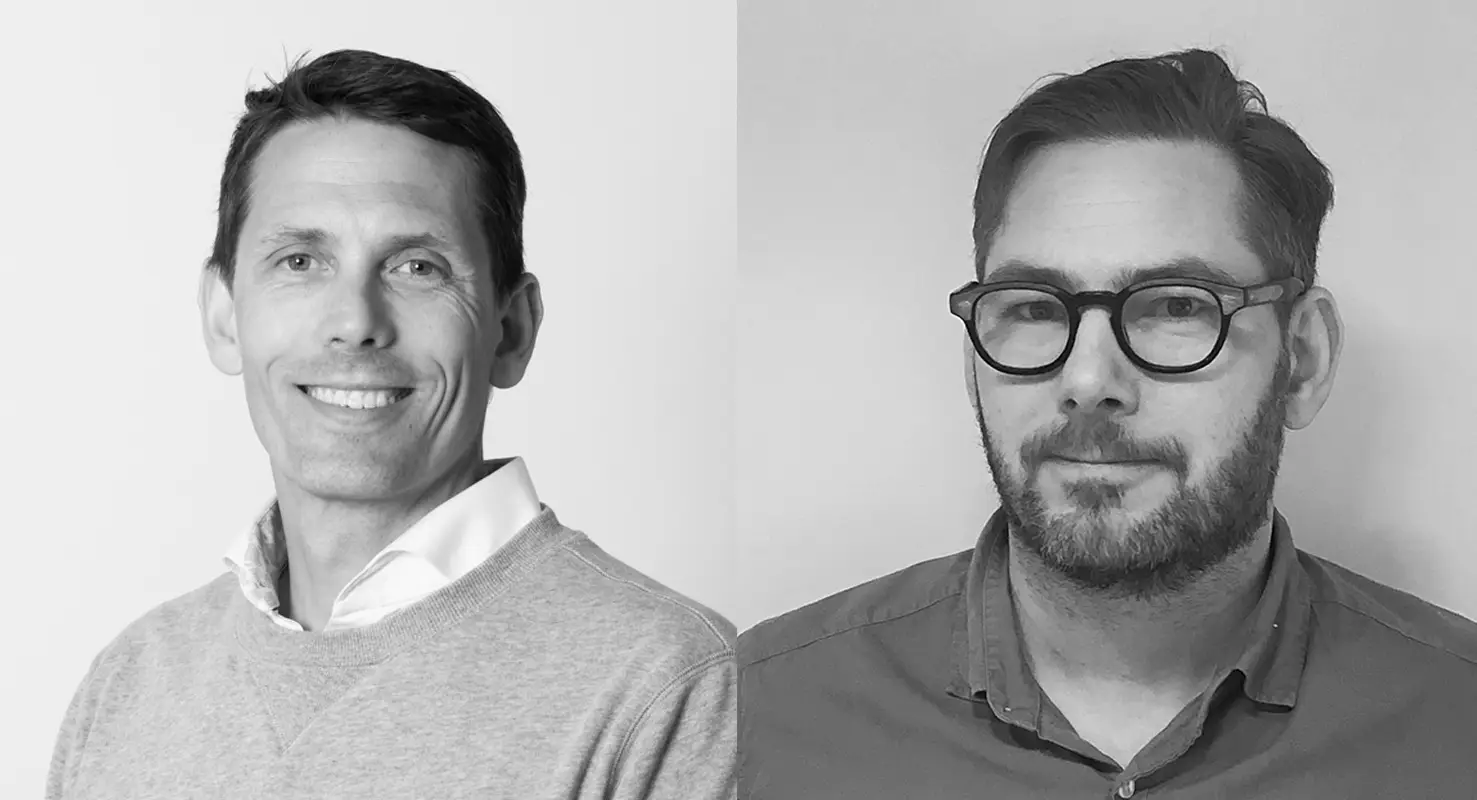
Creating New Opportunities
When finalized in autumn 2026, Zoologen will also feature a café and a fully equipped gym operated by the non-profit sports association Friskis & Svettis. Akademiska Hus views this as an important step toward creating an environment where health, research, and societal value intersect.
– In Sweden, there is a strong connection between physical activity, public health, and science – something that Zoologen will highlight. The establishment of Friskis & Svettis also opens up new opportunities for collaboration with the University of Gothenburg in research on public health and sports injuries, says Berg.
Wolf and Berg emphasize that Zoologen is a key component of the innovation ecosystem emerging at Medicinareberget – a place where a student at the University of Gothenburg can graduate, begin a career at the university or Sahlgrenska University Hospital, and eventually start a company that can scale up in modern facilities on campus.
– The campus area will function as a living ecosystem where networks are preserved, and people grow alongside their ambitions and ideas. Zoologen is not the end of Akademiska Hus’ commitment to Medicinareberget, as the area still contains undeveloped land without zoning plans, says Wolf.
– In autumn 2024, we submitted a zoning application to the City of Gothenburg with the aim of further developing the area, ultimately creating Europe’s most attractive medical and life science environment.







